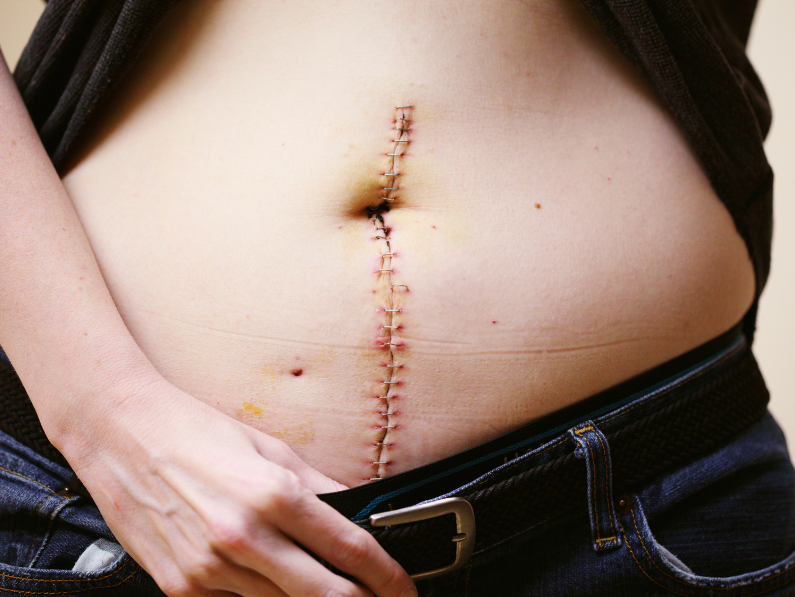Endo surgery prep can be hard to manage alone. You’re already anxious and nervous about the surgery and the outcome. So, trying to remember the steps necessary to properly prepare for surgery can be overwhelming. This is why it’s essential to not go through this alone and find a person that’s willing to help you prepare for your surgery and recover.
Page Contents
Endo Surgery Prep Tips
Designating A Caretaker
You, the patient, are responsible for doing your part in preparing for surgery. Hence, having a trusted caregiver decreases the difficulty of prepping for surgery. They can accompany you to pre-op appointments, and advocate for you with the surgeon and staff. Furthermore, they can learn how best to aid you with your endo surgery prep so they will know what’s expected of them every step of the way.
When choosing a dedicated caretaker, prioritize selecting a responsible, dependable person. Keep in mind you’ll be vulnerable post-surgery. It’s imperative you select a trustworthy moral person. So, choose wisely.
Be clear about what you expect in advance. Set aside time to outline expectations, responsibilities, and the support you’ll need. This eliminates confusion pre and post-surgery, creating a smoother recovery process.
Get Organized Beforehand
Go over your endo surgery prep instructions with your caregiver. Allow them to help you remember important instructions such as when to discontinue medications and supplements before surgery. Fasting and bowel prep are part of the preparatory process. Your caregiver will ensure you have all the items needed and ensure you’re following the instructions accurately. Additionally, they can aid you in purchasing foods such as soup, crackers, and other items you’ll need when you’re discharged and sent home. Furthermore, cleaning the house before surgery and enlisting them to take responsibility for general housekeeping and running errands like picking up medication and groceries is also beneficial.
Create A Recovery Gameplan
Another important factor for your endo surgery prep is knowing what happens when you’re discharged. As mentioned earlier creating a clean environment and designating basic tasks allows you to focus on recovery. Create a recovery sanctuary that’s peaceful, quiet, and comfortable with easy bathroom access. Keep items such as an iPad, books, a sound machine, magazines, or other entertainment favorites. Additional items for a cozy atmosphere include extra pillows for back support. This keeps you in an elevated position to relieve abdominal discomfort. Heating pads and tens units can alleviate lower back pain and aches. However, avoid use on the abdomen. Check with your surgeon to determine if it’s safe to do so.
Lastly, mobility aids can be extremely helpful post-surgery. This is especially beneficial for laparotomy patients. Due to the incision’s location and size, core musculature becomes weak, making it challenging to stand upright and walk. A cane or walker can improve mobility and assist with recovery.
What to Pack In Your Hospital Bag?
Typically you can expect to spend at least one night in the hospital after surgery. This varies depending on the surgery type. Generally, minimally invasive procedures like laparoscopy require a shorter overnight stay. In contrast, significant surgeries like laparotomy require a 2-3 day stay. Your surgeon will let you know in advance how long of a stay they’re recommending and what essentials you may want to bring.
Your designated caretaker can help you with this task. At least 2-3 days before surgery, begin packing a small to medium overnight bag with essential items. You may want to pack toothpaste, a toothbrush, body cleanser, face wash, lotion, and deodorant.
Other items to pack include extra pillows, a blanket, a book, magazines, earplugs, a sleep mask, underwear, nightshirts (preferably button-down ones), a robe, and slippers. Something else to include is pads or period underwear. Post-surgery spotting or bleeding is common. However, tampons, menstrual cups, and menstrual discs are contraindicated. So, packing the above supplies will manage any slight bleeding or spotting.
Another great addition to your overnight bag is personal identification for you and your caretaker, insurance information, a list of other conditions or illnesses, and a list of allergies. Usually, allergies and illnesses are discussed in advance. However, it doesn’t hurt to have a few copies just in case.
Point Of Contact
Lastly, having a designated caretaker can alleviate stress for family members and friends that obviously want to know about the welfare of your procedure. Your caretaker will be responsible for keeping them in the know with updates about your general well-being, updates about when your surgery starts, and when it ends. They’ll pass along information about how you’re feeling after surgery and when they can visit or speak with you. This basically allows you to focus on recovering and healing. You can always speak and visit with loved ones as you get stronger and more alert but the last thing you want is to have a ton of people around when you’re still recovering from anesthesia and dealing with pain.
Preparation is KEY
The fundamentals of endo surgery prep can quickly become complicated. This is why working with a qualified surgeon is valuable. They’ll provide step-by-step instructions to make the process simple. And their surgical team should be an extension of the quality service your surgeon provides.
Enlisting the help of a caretaker is a powerful endo surgery prep tool. They’ll ensure you adhere to pre and post-surgery protocols while aiding in preparation for your surgery and recovery. However, it’s important to select a reliable, trustworthy, and dependable person. Remember you’ll be vulnerable during this process, and you need someone that is dependable and won’t take advantage of you. (see also My Laparotomy and Little Known Info I Wish I Knew)
References
Havard Health: Managing Medications Before A Medical Procedure
Very Well Health: Exploratory Laparotomy How To Prepare









